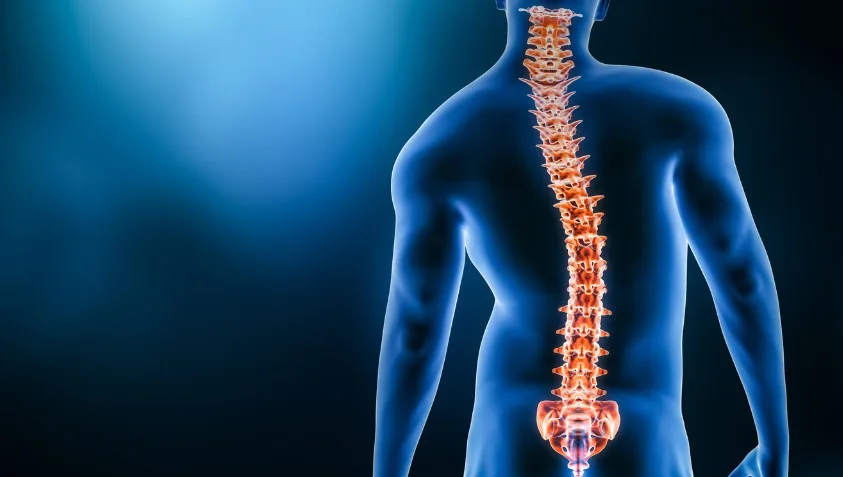
Pregnancy Symptoms Before Missed Period
Have you ever wondered if your body gives you hints about being pregnant even before your period ghosts you? Although you can only know for sure with a pregnancy test, there must be some pregnancy symptoms before the missed period.
You can know your body changes if you pay extra attention. Let’s understand how you can know your pregnancy status before the apparent signs.
What is Usually the First Pregnancy Sign?
It’s a missed period.
A missed period is the most common early indicator of pregnancy. Your body uses your monthly cycle as a means of getting ready for an upcoming pregnancy. The thickening of the lining of your uterus, where a fertilized egg would implant to start a pregnancy, is a part of that.
If you are not pregnant, your uterus sheds excess lining during your menstrual cycle. Pregnancy causes the lining to remain in place and interferes with regular menstruation.
Naturally, missing or delayed menstruation does not always indicate pregnancy. If your body is under a lot of stress or you have a hormonal imbalance, you could be experiencing an irregular menstrual period.
However, you can always tell you’re pregnant by noticing some signs.
Pregnancy Symptoms Before Missed Period to Look for!
Each of us is unique, and so are all pregnancies. If you are pregnant, you will probably have a set of symptoms. They may also show up earlier or later than planned.
Spotting/Light Bleeding
It often comes as a surprise to many women that spotting or light bleeding can be an early indicator of pregnancy, with approximately one-third of women experiencing this phenomenon.
Referred to as implantation bleeding, medical professionals believe it occurs as the fertilized egg attaches, or implants itself, into the uterine lining. It’s essential to distinguish this type of bleeding from that resulting from a miscarriage, as implantation bleeding is generally lighter in comparison.
Cramping/Lower Abdominal Pain
Cramps and lower abdominal pain usually make us think a period is on the way. Still, sometimes, they can signal that a fertilized egg is attaching itself to the uterus.
Implantation cramps might happen with or without any spotting or bleeding, and they can feel different from regular period cramps.
Instead of a steady ache, you might feel a mild to moderate tingling, pulling, or pricking that comes and goes over a few days.
On the other hand, typical period cramps often feel like a throbbing or dull ache and usually start a day or two before your period.
Higher Basal Body Temperature
If you’ve been monitoring your basal body temperature to boost your chances of getting pregnant, it usually goes up right after ovulating.
However, if you’ve conceived, your temperature might stay higher instead of going back down.
There could be other reasons for a temperature increase, like being generally warm. Still, if this higher temperature sticks around for over a few weeks, it might point to pregnancy as the possible cause.
Changes in Cervical Mucus
If you’ve been watching your cervical mucus to pinpoint the best time for getting pregnant, here’s another reason to keep at it: during the initial weeks of pregnancy, you might notice a change.
The amount of cervical discharge can increase and become stickier and whiter. So, if you see these shifts, it could be a clue that you might be on your way to becoming pregnant.
Keep an eye out for these changes as you continue tracking your fertility.
Breast Tenderness
When you’re pregnant, your body goes through enormous changes because of hormones like estrogen and progesterone that help the baby grow. One standard change is feeling tenderness in your breasts.
Before you even miss your period, you might start noticing your breasts feeling more tender, swollen, or tingly. If you usually have tender breasts before or after your period, the tenderness during pregnancy can last longer. Your nipples might also feel sore.
All these changes are because your body is ready to care for the baby.
Fatigue
Feeling tired during pregnancy is standard; some women might sense it even before realizing they’re pregnant.
Surprisingly, fatigue can kick in as early as one week after conception. This early tiredness happens due to the rapid shifts in hormone levels, especially the rise in progesterone.
Frequent Urination
If you find yourself making more bathroom visits than usual, especially around the time your next period is supposed to arrive, it could be a signal of pregnancy.
How much you drink can affect how often you need to pee. However, during pregnancy, there’s an increase in the amount of blood in your body. It means your kidneys have more fluid to filter and more waste to eliminate.
Nausea
It is one of the most apparent pregnancy symptoms before missed period. It usually shows up as a dislike for certain foods, feeling queasy, and, for some, even throwing up.
This symptom can start as soon as two weeks after conception, which is roughly around the fourth week of pregnancy, just when you might miss your period if you were pregnant.
However, not everyone goes through nausea or vomiting. Despite its name, morning sickness can strike at any time of the day or night. So, if you’re feeling queasy, whether it’s in the morning or later in the day, and it’s been a few weeks since you might have conceived, it could be a sign of pregnancy.
Bloating
We all deal with bloating and constipation occasionally, but during pregnancy, they become common.
The usual suspects? Those changing hormones. They can slow down digestion, creating a buildup of air in the gut and causing constipation.
In the early days, you might notice mild bloating, constipation, and other pregnancy symptoms before missed period. If you’re pregnant, these symptoms might hang around throughout the pregnancy.
Mood Changes
Many things can influence your mood, whether it’s a challenging day at work or the usual ups and downs of your menstrual cycle.
However, mood changes are common during pregnancy, and they might be more apparent in the early stages as your body experiences a sudden surge of estrogen and progesterone.
If you’re pregnant, any shifts in your mood are probably happening alongside other symptoms like tiredness or nausea.
You might feel more sensitive or teary, or your patience is a bit shorter, and things that never bothered you before are suddenly annoying. It’s all part of the package of changes that come with pregnancy.
Headaches
Headaches are a part of life. They show up when you have a cold, deal with allergies, experience stress, feel tired, or decide to cut back on caffeine while preparing for pregnancy.
Surprisingly, they can also be linked to pregnancy.
Headaches might occur due to the rising blood volume and hormonal changes. Additionally, if you’re dealing with nausea and not able to stay well-hydrated, that can also lead to headaches.



